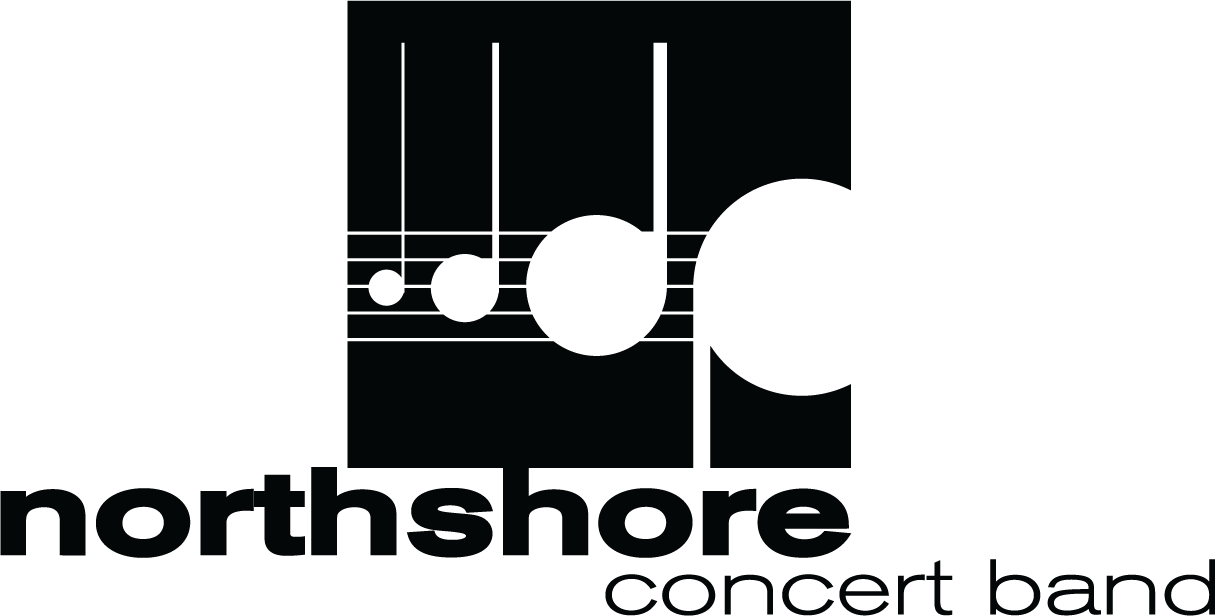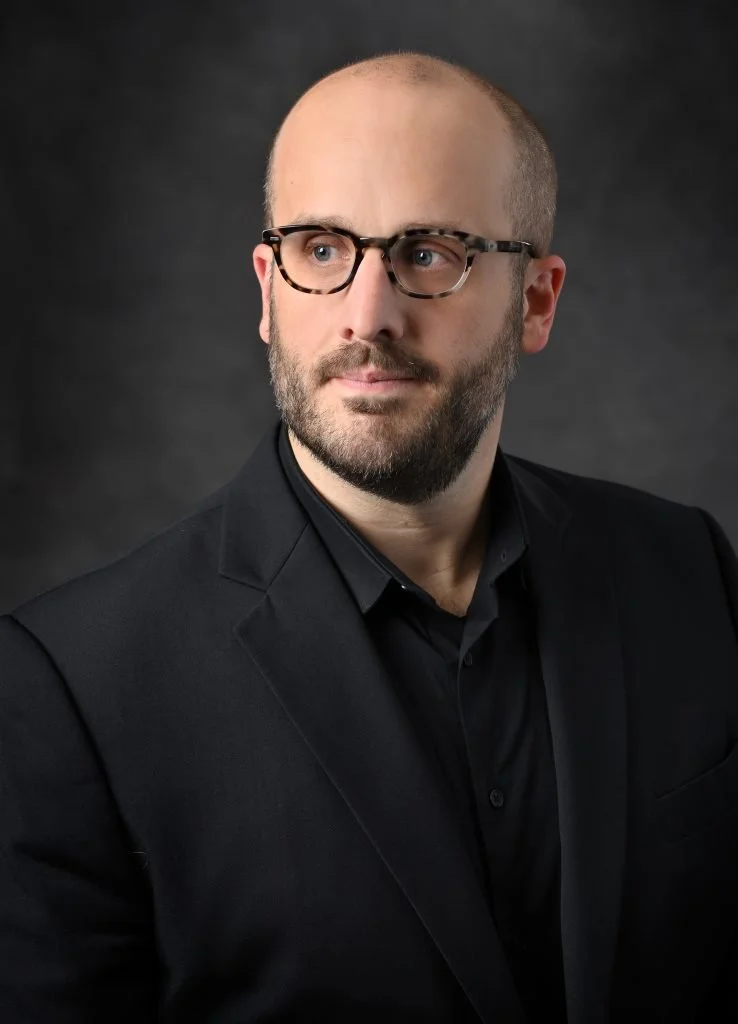Composer David Biedenbender
Our June 9, 2024 program features David Biedenbender’s Luminescence, a scintillating transformation of Break Forth O Beauteous Heavenly Light.
Mr. Biedenbender describes this work:
Luminescence is based on fragments from the melody Break Forth O Beauteous Heavenly Light, which was written by Johann Schop (ca. 1590–1664) and subsequently harmonized in several settings by Johann Sebastian Bach.
Break Forth O Beauteous Heavenly Light was first known as “Ermuntre dich, mein schwacher Geist” (Rouse thyself, my weak spirit), and was published in Lepzig in 1641 in Johann Rist’s Himmlische Lieder (Heavenly or Celestial Songs), where the tune appeared in triple meter along with text by Rist. Johann Sebastian Bach probably found an altered version of the tune in Johann Cruger’s Praxis Pietatis Melica (1647) and subsequently harmonized it in various settings. This particular setting is from the second cantata of his Christmas Oratorio from 1737.
The original melody had a different character in its original form, as it was more closely related to Renaissance musical style. By the time Bach harmonized the tune in the 18th century, musical preferences had shifted: the rhythm of the melody was made more consistent, the tempo became slower, and the harmony and counterpoint was more complex. This setting is still sung in modern churches at Christmas and is commonly known as Break Forth O Beauteous Heavenly Light.
David Biedenbender is a composer, conductor, performer, educator, and interdisciplinary collaborator. David’s music has been described as “simply beautiful” (twincities.com), “striking” and “brilliantly crafted” (Times Argus) and is noted for its “rhythmic intensity” (NewMusicBox) and “stirring harmonies.” (Boston Classical Review) “Modern, venturesome, and inexorable…The excitement, intensity, and freshness that characterizes Biedenbender’s music hung in the [air] long after the last note was played.” (Examiner.com) “Clearly, this is a composer to watch out for.” (Fanfare Magazine) He has written music for the concert stage as well as for dance and multimedia collaborations, and his work is often influenced by his diverse musical experiences in rock and jazz bands as an electric bassist, in wind, jazz, and New Orleans-style brass bands as a euphonium, bass trombone, and tuba player, and by his study of Indian Carnatic music.
In addition to composing, David is a dedicated teacher. He is Associate Professor of Composition in the College of Music at Michigan State University, and he previously taught composition and theory at Boise State University, Eastern Michigan University, Oakland University, Madonna University, the Music in the Mountains Conservatory, and the Interlochen Arts Camp.
We contacted David Biedenbender and asked him to share his journey in music, influences, inspiration, and advice for young musicians.
Please tell us about your journey in music and life.
My musical journey began in the Lutheran church. My father and both grandfathers are/were Lutheran pastors and my mom is an organist. I remember learning to read music by watching her fingers and feet and following along in the hymnal. I sang in the church choir and began playing trumpet in middle school. I was terrible at the trumpet, but I could warm up on pedal tones, so I switched to the euphonium in high school. I also picked up the bass trombone and electric bass and joined every musical ensemble offered in high school: concert band, marching band, pit orchestra, pep band, jazz band, as well as a few chamber groups. I started arranging music for these chamber groups which led to writing my first composition – a 14-minute piece for my high school band – and I got to conduct the premiere. I was hooked. I went on to study composition with David Gillingham at Central Michigan University and Michael Daugherty, Bright Sheng, Kristin Kuster, Stephen Rush, and Evan Chambers at the University of Michigan. I've been a professor of composition at Michigan State University for eight years.
What have been some of your musical influences?
I particularly love alternative rock and heavy metal as well as jazz, but I love discovering new artists and bands. One of my favorite things is for my friends and students to tell me about what they're listening to.
Which composer/musician, past or present, would you most like to meet for a coffee and why?
Nadia Boulanger. She is renowned for her teaching and mentoring of composers. So many great (American composers in particular) worked with her. She had a knack for helping composers discover their own unique voice.
What inspires you?
Life! I feel like each piece is a snapshot of who I am and what interests me in that moment in my life. I have found inspiration in dreams, physics, "old music," my children, etc.
What do you do to relax?
I enjoy reading and spending time with my family. I have two children, and they teach me so much about the world.
Do you have any advice for young musicians?
Be curious and listen to the world with an open mind and ears.
Please share any thoughts that you may have about the Northshore Concert Band.
I am so grateful to Mallory Thompson and the Northshore Concert Band for including my work on this program! I wish I could be there to hear you all!
A special thank you to David Biedenbender for speaking with us and giving permission to reproduce this material. Please visit his website davidbiedenbender.com to learn more about him and his work.
LIFE CYCLES
Sunday, June 9, 2024, 3:00 p.m.
McGrath Family Performing Arts Center, Wilmette, IL
Learn more about the Northshore Concert Band at www.northshoreband.org
Follow this blog to receive more informative and entertaining interviews.

